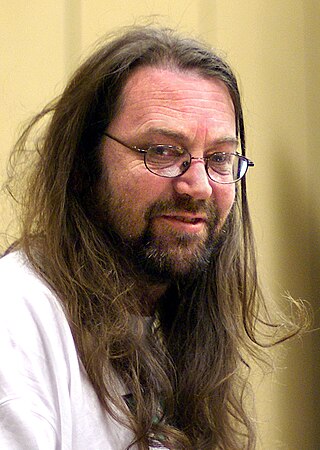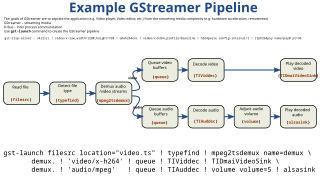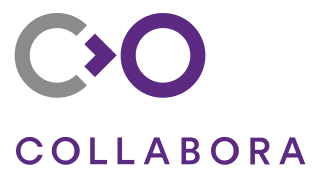
The Commodore 64, also known as the C64, is an 8-bit home computer introduced in January 1982 by Commodore International. It has been listed in the Guinness World Records as the highest-selling single computer model of all time, with independent estimates placing the number sold between 12.5 and 17 million units. Volume production started in early 1982, marketing in August for US$595. Preceded by the VIC-20 and Commodore PET, the C64 took its name from its 64 kilobytes(65,536 bytes) of RAM. With support for multicolor sprites and a custom chip for waveform generation, the C64 could create superior visuals and audio compared to systems without such custom hardware.

Commodore International was an American home computer and electronics manufacturer founded by Jack Tramiel. Commodore International (CI), along with its subsidiary Commodore Business Machines (CBM), was a significant participant in the development of the home computer industry in the 1970s to early 1990s. In 1982, the company developed and marketed the world's best-selling computer, the Commodore 64, and released its Amiga computer line in July 1985. Commodore was one of the world's largest personal computer manufacturers, with sales peaking in the last quarter of 1983 at $49 million.

Jeff Minter is an English video game designer and programmer who often goes by the name Yak. He is the founder of software house Llamasoft and has created dozens of games during his career, which began in 1981 with games for the ZX80. Minter's games are shoot 'em ups which contain titular or in-game references demonstrating his fondness of ruminants. Many of his programs also feature something of a psychedelic element, as in some of the earliest "light synthesizer" programs including Trip-a-Tron.
In computing, cross-platform software is computer software that is designed to work in several computing platforms. Some cross-platform software requires a separate build for each platform, but some can be directly run on any platform without special preparation, being written in an interpreted language or compiled to portable bytecode for which the interpreters or run-time packages are common or standard components of all supported platforms.
A computing platform, digital platform, or software platform is an environment in which software is executed. It may be the hardware or the operating system (OS), a web browser and associated application programming interfaces, or other underlying software, as long as the program code is executed. Computing platforms have different abstraction levels, including a computer architecture, an OS, or runtime libraries. A computing platform is the stage on which computer programs can run.
David Whittaker is an English video game composer. He is known for writing video game music in most of the 1980s and early 1990s for different formats.
freedesktop.org (fd.o), formerly X Desktop Group (XDG), is a project to work on interoperability and shared base technology for free-software desktop environments for the X Window System (X11) and Wayland on Linux and other Unix-like operating systems. Although freedesktop.org produces specifications for interoperability, it is not a formal standards body.

GStreamer is a pipeline-based multimedia framework that links together a wide variety of media processing systems to complete complex workflows. For instance, GStreamer can be used to build a system that reads files in one format, processes them, and exports them in another. The formats and processes can be changed in a plug and play fashion.

Paradroid is a Commodore 64 computer game written by Andrew Braybrook and published by Hewson Consultants in 1985. It is a shoot 'em up with puzzle elements and was critically praised at release. The objective is to clear a fleet of spaceships of hostile robots by destroying them or taking them over via a mini-game. It was later remade as Paradroid 90 for the Commodore Amiga and Atari ST home computers and as Paradroid 2000 for the Acorn Archimedes. There exist several fan-made remakes for modern PCs. In 2004 the Commodore 64 version was re-released as a built-in game on the C64 Direct-to-TV, and in 2008 for the Wii Virtual Console in Europe.

The software program VICE, standing for VersatIle Commodore Emulator, is a free and cross platform emulator for Commodore's 8-bit computers. It runs on Linux, Amiga, Unix, MS-DOS, Win32, macOS, OS/2, RISC OS, QNX, GP2X, Pandora, Dingoo A320, Syllable, and BeOS host machines. VICE is free software, released under the GNU General Public License since 2004.

Pitivi is a free and open-source non-linear video editor for Linux, developed by various contributors from free software community and the GNOME project, with support also available from Collabora. Pitivi is designed to be the default video editing software for the GNOME desktop environment. It is licensed under the terms of the GNU Lesser General Public License.

Phonon is the multimedia API provided by KDE and is the standard abstraction for handling multimedia streams within KDE software and also used by several Qt applications.

PulseAudio is a network-capable sound server program distributed via the freedesktop.org project. It runs mainly on Linux, including Windows Subsystem for Linux on Microsoft Windows and Termux on Android; various BSD distributions such as FreeBSD, OpenBSD, and macOS; as well as Illumos distributions and the Solaris operating system. It serves as a middleware in between applications and hardware and handles raw PCM audio streams.

Moonlight is a discontinued free and open source implementation for Linux and other Unix-based operating systems of the Microsoft Silverlight application framework, developed and then abandoned by the Mono Project. Like Silverlight, Moonlight was a web application framework which provided capabilities similar to those of Adobe Flash, integrating multimedia, graphics, animations and interactivity into a single runtime environment.
Manley & Associates was an independent software developer, founded in 1982, which developed or ported over 70 video games, multimedia, and educational entertainment titles which were published by other companies, including Electronic Arts, Activision, Disney, GameTek, Publishing International, and Spectrum HoloByte. Many of the company's early games were one or two person projects created in founder Ivan Manley's house, but eventually it grew to roughly 60 people working from an office park in Issaquah, Washington.

Collabora is a global private company headquartered in Cambridge, United Kingdom, with offices in Cambridge and Montreal. It provides open-source consultancy, training and products to companies.

PipeWire is a server for handling audio, video streams, and hardware on Linux. It was created by Wim Taymans at Red Hat. It handles multimedia routing and pipeline processing.












